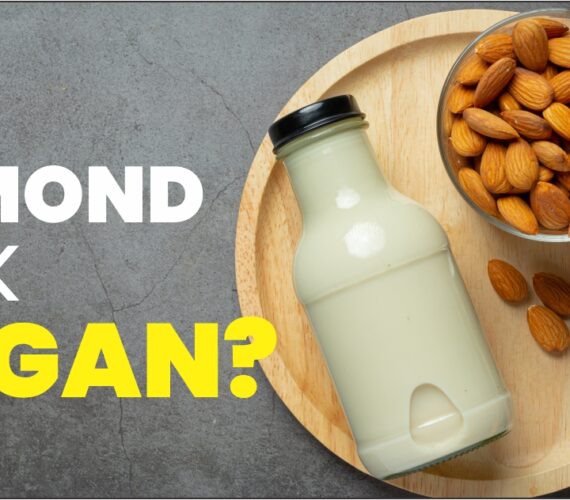In recent years, there has been a significant rise in the popularity of vegetarianism. Many individuals are choosing to adopt a vegetarian lifestyle due to various reasons, including ethical concerns, health benefits, and environmental sustainability. This article aims to explore the reasons why vegetarian food is often considered better than non-vegetarian food and shed light on the advantages of embracing a vegetarian diet.
A diverse range of vegetarian diets exist, each with its own unique characteristics and benefits. The three main categories include total vegetarian, lacto-ovo vegetarian, and lacto vegetarian diets.
A total vegetarian diet encompasses a rich variety of plant-based foods such as legumes, grains, vegetables, fruits, and nuts. This comprehensive approach ensures a wide array of essential nutrients are obtained solely from non-animal sources.
Reasons You Should Consider Taking More Vegetarian Food
Exploring a vegetarian diet and incorporating more plant-based foods into your meals can bring about a host of compelling reasons to consider this dietary shift. Here are some key motivations to embrace and enjoy vegetarian food:
Read Also :- 10 Reasons to Go Vegan for Your Health
Health Benefits of Vegetarian Food
Reduced Risk of Chronic Diseases
A vegetarian diet, when well-balanced and nutritionally adequate, can provide numerous health benefits. Studies have shown that vegetarians tend to have a lower risk of developing chronic diseases such as heart disease, high blood pressure, type 2 diabetes, and certain types of cancer. The abundance of fruits, vegetables, whole grains, legumes, and nuts in a vegetarian diet contributes to these protective effects.
Lower Cholesterol Levels
Vegetarian food is generally low in saturated fats and cholesterol, which are primarily found in animal-based products. By opting for plant-based alternatives, individuals can significantly reduce their intake of harmful fats, leading to lower cholesterol levels and improved cardiovascular health.
Enhanced Digestive Health
Vegetarian diets are typically rich in fiber, which promotes healthy digestion and prevents common digestive issues such as constipation and diverticulosis. A fiber-rich diet also helps maintain a healthy weight and reduces the risk of obesity.
Weight Management
Vegetarian diets, when properly balanced, can be beneficial for weight management. The high fiber content of plant-based foods promotes feelings of fullness and can help control calorie intake. Additionally, vegetarian diets often contain fewer processed foods and added sugars, contributing to overall weight control.
Improved Digestion
The fiber-rich nature of vegetarian food aids in maintaining a healthy digestive system. Fiber adds bulk to the diet, facilitating regular bowel movements and preventing common digestive disorders. It also promotes the growth of beneficial gut bacteria, supporting optimal gut health.
Reduced Antibiotic Consumption
In conventional animal farming, antibiotics are often used to promote growth and prevent diseases. By opting for vegetarian food, individuals can minimize their contribution to the overuse of antibiotics in animal agriculture. This, in turn, helps mitigate the issue of antibiotic resistance, a growing concern in public health.
Cultural and Spiritual Significance
Vegetarianism holds cultural and spiritual significance in various traditions and religions around the world. For example, many Hindus, Buddhists, and Jains follow vegetarian or plant-based diets as a form of non-violence and respect for all living beings. Embracing vegetarian food can be a way to connect with cultural and spiritual values.
Environmental Impact of Vegetarianism
Conservation of Natural Resources
The production of meat and animal products requires substantial amounts of land, water, and feed. By choosing vegetarian food, we can reduce the strain on natural resources. Vegetarian diets have a smaller ecological footprint and contribute to the conservation of forests, water sources, and overall biodiversity.
Reduced Greenhouse Gas Emissions
Livestock farming is a significant contributor to greenhouse gas emissions, particularly methane and nitrous oxide. These gases are known to contribute to climate change. Opting for a vegetarian diet can significantly reduce our carbon footprint and help mitigate the effects of global warming.
Preservation of Biodiversity
The expansion of animal agriculture often leads to deforestation and habitat destruction, resulting in the loss of valuable ecosystems and wildlife. By shifting towards vegetarian food choices, we can help protect biodiversity and preserve delicate ecosystems that support numerous plant and animal species.
Ethical Considerations and Animal Welfare
Minimizing Animal Suffering
One of the main reasons people choose a vegetarian lifestyle is to minimize animal suffering. Factory farming practices often involve cramped conditions, stressful environments, and inhumane treatment of animals. By abstaining from meat consumption, individuals can contribute to a more compassionate and ethical food system.
Ethical Treatment of Animals
Vegetarianism promotes the ethical treatment of animals by recognizing their intrinsic value and right to a life free from unnecessary harm. Choosing plant-based alternatives sends a powerful message to industries that prioritize animal welfare and encourages the development of more sustainable and humane farming practices.
Sustainable Food Choices
As the global population continues to grow, the demand for food increases. Vegetarianism offers a sustainable solution by utilizing resources more efficiently. Plant-based diets require fewer resources, such as land, water, and energy, making them a viable option to meet the nutritional needs of a growing population.
Addressing Common Concerns
Meeting Nutritional Needs
A well-planned vegetarian diet can adequately meet all nutritional requirements. By incorporating a variety of plant-based foods, including legumes, whole grains, fruits, vegetables, nuts, and seeds, individuals can obtain essential nutrients such as protein, iron, calcium, and vitamins. Consulting a registered dietitian can help ensure a balanced and nutritious vegetarian meal plan.
Variety and Creativity in Vegetarian Cuisine
Contrary to popular belief, vegetarian cuisine offers an incredible variety of flavors, textures, and culinary experiences. From vibrant salads and hearty vegetable stews to plant-based protein alternatives and delectable desserts, there are countless options to explore and experiment with in vegetarian cooking.
Transitioning to a Vegetarian Diet
Transitioning to a vegetarian diet can be a gradual process. Starting with Meatless Mondays or incorporating more plant-based meals into your routine can help ease the transition. Experimenting with different recipes, exploring vegetarian restaurants, and seeking support from online communities can provide guidance and inspiration throughout the journey.
Conclusion
Vegetarian food is considered better than non-vegetarian food due to its numerous benefits for our health, the environment, and animal welfare. By embracing a vegetarian lifestyle, individuals can reduce the risk of chronic diseases, contribute to environmental conservation, and promote ethical treatment of animals. Moreover, vegetarian diets can be nutritionally balanced and offer a wide range of delicious and creative culinary options.
FAQs (Frequently Asked Questions)
Can a vegetarian diet provide all the necessary nutrients?
Yes, a well-planned vegetarian diet can meet all nutritional requirements by incorporating a variety of plant-based foods.
Is vegetarian food more expensive than non-vegetarian food?
Vegetarian food can be cost-effective as plant-based protein sources, legumes, and grains are often more affordable than meat and seafood. Either there are so many company in the market who sell vegan products and give same taste of non-veg products. As a know best vegan food products manufacture company Vezlay Foods Pvt. Ltd.. They manufacture Shami Kabab, Seekh Kabab, Veg Meat, Veg Chicken and so more products which look and taste like non-veg in pure vegetarian products.
Are there any health risks associated with a vegetarian diet?
When planned properly, vegetarian diets are generally safe and offer numerous health benefits. However, it’s essential to ensure adequate intake of nutrients like iron, vitamin B12, and omega-3 fatty acids.
Can children follow a vegetarian diet?
Yes, children can thrive on a vegetarian diet as long as their nutritional needs are met. Parents should ensure a balanced intake of nutrients through a variety of plant-based foods. You can get all nutrition protein in vegetarian food. If I say about
How can I get enough protein on a vegetarian diet?
Plant-based sources of protein include legumes, tofu, tempeh, seitan, quinoa, nuts, and seeds. Combining different protein sources throughout the day helps ensure adequate intake.
Is a vegetarian diet suitable for athletes and active individuals?
Yes, vegetarian diets can provide sufficient nutrients for athletes and active individuals. Adequate planning, including attention to protein sources and overall energy intake, is important to meet increased nutrient needs.
Can a vegetarian diet help with weight loss?
Yes, vegetarian diets can support weight loss due to their high fiber content and emphasis on whole, unprocessed foods. However, it’s essential to maintain a balanced and calorie-controlled diet.
Are there any risks of nutrient deficiencies in a vegetarian diet?
While a well-planned vegetarian diet can meet all nutritional needs, certain nutrients like vitamin B12, iron, zinc, and omega-3 fatty acids may require special attention. Consulting a healthcare professional or registered dietitian is recommended.
What are some popular vegetarian protein sources?
Plant-based protein sources include legumes (beans, lentils), tofu, tempeh, seitan, quinoa, nuts, seeds, and certain whole grains like amaranth and buckwheat.
Can a vegetarian diet be suitable for pregnant women?
Yes, vegetarian diets can be safe and healthy during pregnancy. However, it’s crucial to ensure adequate intake of key nutrients like iron, folate, calcium, and omega-3 fatty acids. Regular prenatal care and guidance from healthcare professionals are essential.








